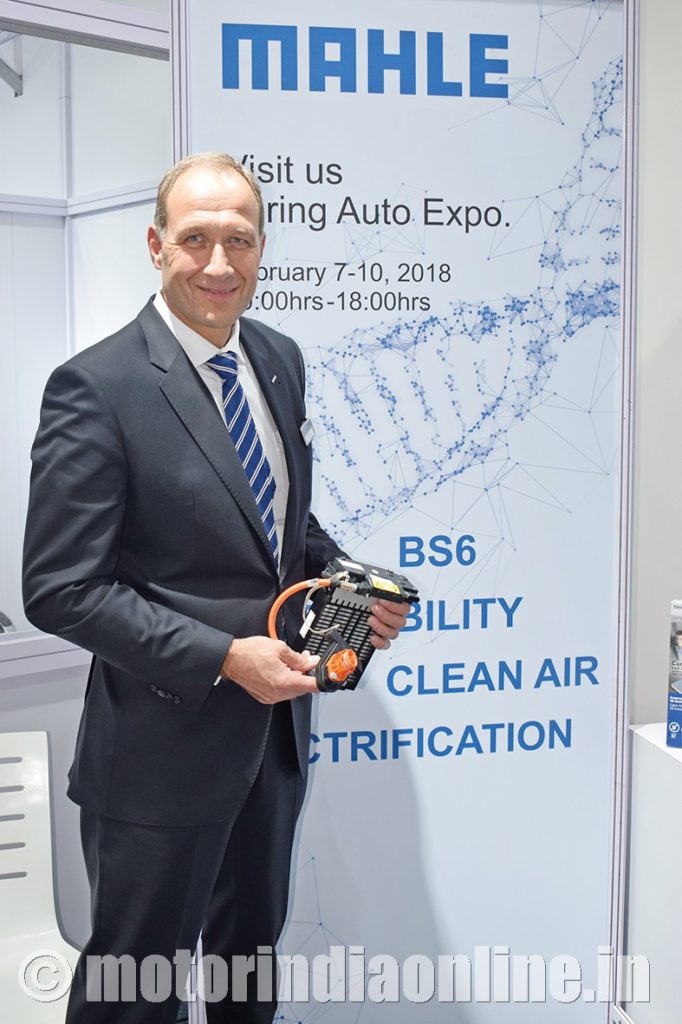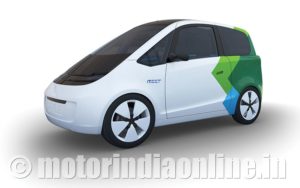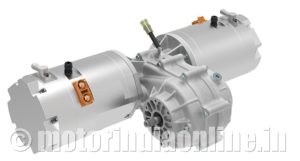OEMs’ IC engine partner emerging as a systems supplier for electric mobility
MAHLE, as one of the world’s leading suppliers and a development partner to the automotive industry, offers innovative mobility solutions in the areas of clean air, fuel efficiency and driving pleasure. The company addresses all crucial issues related to the vehicles, from engine systems, filtration, HVAC & thermal management to mechatronics.

During Auto Expo 2018, MAHLE showcased its cost-effective options for electric vehicles and BS-VI upgradation at one of its own tech showcase events. “We see it as our responsibility to support the needs of internal combustion engines, and we have said it on multiple occasions that the very last piston that will be installed in the very last IC engine will be a piston from MAHLE. This very well describes MAHLE’s intention, and it is true for all the other products too where we have a major presence,” said Mr. Arnd Franz, member of the Management Board, Corporate Executive Vice President, OE – Automotive Sales and Application Engineering, MAHLE GmbH.
Regarding BS-VI developments, there is still some scope as OEMs are not fully ready to meet the new norms for all their models. “Part of our clean air solutions is CO2 reduction and hence we are showcasing our BS-VI technology strengths along with electric vehicles (EVs),” informed Mr. Ramesh Sundararajan, Director – Sales & Application Engg & Head of Sales Office India.
Global EV outlook
The emerging trend globally is towards electric vehicles, and this is likely to expand faster than what we can imagine. There are challenges like Li-Ion battery costs and charging infrastructure, apart from capacity limitations at OEMs and at component suppliers’ end which are being addressed currently.
Once the cost of lithium ion battery reaches $100 per kilowatt hour from the current level of $150-200, the overall cost of an electric vehicle vis-a-vis an IC vehicle will be more or less similar. “When we reach this tipping point, the green planet concept will get a push. Which also means there will be no big incentive for one to remain with IC engine and there will be a lot to gain by going electric,” revealed Mr. Sundararajan.
Considering its strong presence in IC engine and opportunities in the emerging technologies, MAHLE has developed a dual strategy. One is to remain strong in the segments that they are leaders like the pistons, rings and valve train for the IC engine. “We will continue to provide technological support in these segments. The other part of the strategy is to focus future investments on the emerging markets and electric mobility solutions,” claimed Mr. Franz.
Powering e-mobility
MAHLE has recently acquired three companies in the field of mechatronics which will serve as the launching point for its future e-mobility plans. One is Letrika, based in Slovenia, which is already in the drive motors space & all the drive motor-related parts for electric vehicles. Then there is another company Kokusan Denki Co. Ltd., based in Japan, which makes small motors which complement the electric drives. Recently MAHLE acquired a Spanish company called Nagares S.A., which will focus on power electronics.
“The three companies we have acquired will help us gain expertise as well as provide cost-efficient solutions in the areas of electric motors, electric drive systems, inverters, on board chargers, sensors, etc. When the motor is electric, all the auxiliaries will be electric, like coolant pump, power steering motor, compressor and oil pumps. Even the battery that generates a lot of heat will have to be maintained at an optimal temperature. In hot temperatures it will need to be cooled and in extreme cold temperature it will need to be heated. We have already received several nominations from global OEMs for their electric projects,” elaborated Mr. Franz.
It had showcased its competence at the IAA Cars in Frankfurt/Germany in September 2017. Part of the world debut, MAHLE unveiled the vehicle concept “MEET” (MAHLE Efficient Electric Transport) to the public that combined two electric motors, transmission, and a 48-volt electronics system.
EV trends in India
Coming to the scenario in India, one does not see a major shift happening, as fast as in Europe, before 2030. Mr. Sundararajan elaborated: “There are several reasons like the charging infra, total cost of ownership and the general feeling by people to be left stranded without charging. Hence, we feel the early adopters will be 2-3-wheelers, followed by intra-city buses, because of predictable route & distances – already some STUs have installed electric buses on trial basis. City applications and point-to-point delivery vehicles like delivery vans, cash vans, etc., can go electric along with passenger cars that will be primarily promoted by aggregators.”
Despite the fact that the Indian OEMs are already pre-occupied with BS-VI upgradation, there are advance engineering teams with the OEMs that are preparing themselves for electric mobility. “I believe the real action will only start from 2020. Until then, everybody is focusing on how to protect their current business and upgrade their vehicles to meet BS-VI emission norms. In the meantime, our aim is to work with the engineering teams of the OEMs, provide them awareness about MAHLE’s EV product portfolio which will help us understand their needs, technology positioning and develop our future strategy for India,” said Mr. Sundararajan.
Clearly MAHLE has strengthened its competence in products not only for BS-VI upgradation but also for the e-mobility sector and is now in a position to offer integrated systems solutions across the broad product portfolio of electric drives, power electronics, auxiliary components and thermal management.

